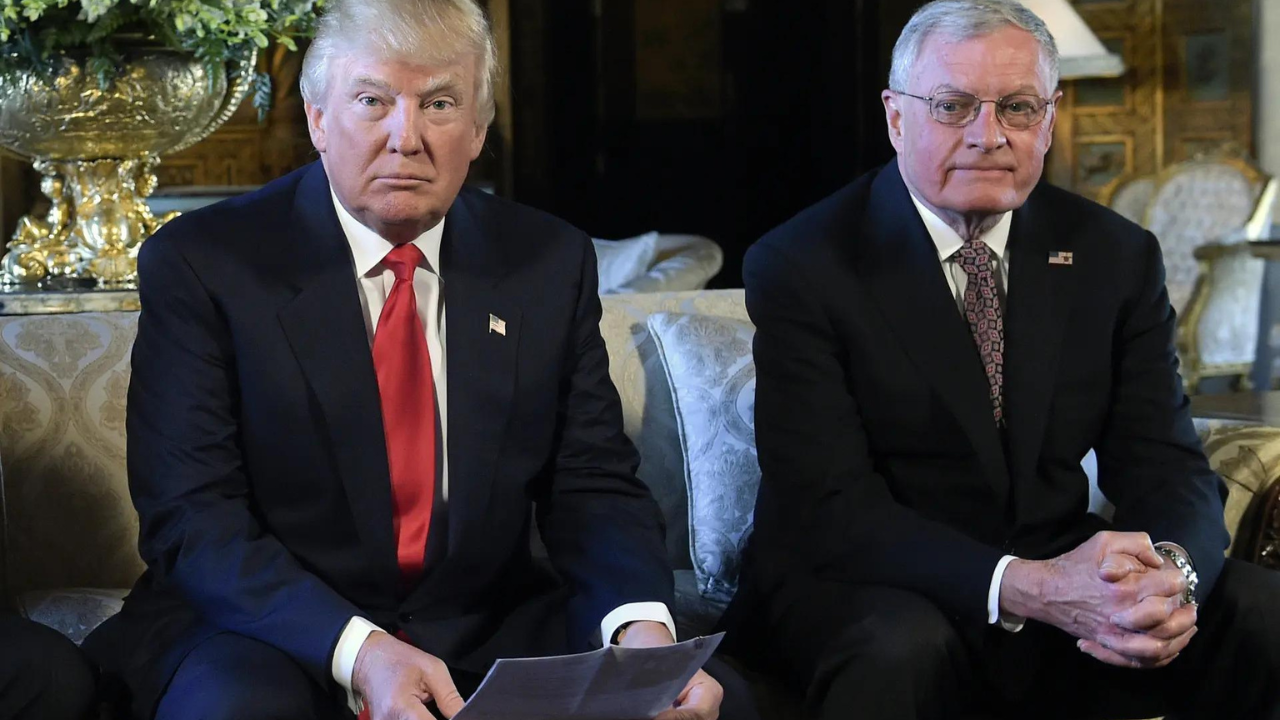ARTICLE AD BOX
ISRAEL yesterday revealed details of the drone strike which killed seven aid workers in Gaza and called it “a serious mistake and violation of orders”.
An initial inquiry concluded commanders broke their own rules of engagement — and that an officer mistook an aid worker carrying a bag for a gunman.
 AFP
AFP John Chapman, former SBS hero, was among three Brits killed in an air strike while delivering aid in Gaza
John Chapman, former SBS hero, was among three Brits killed in an air strike while delivering aid in Gaza Ex-Royal Marine James Henderson was also killed
Ex-Royal Marine James Henderson was also killed The family of ex-sniper James Kirby said they were ‘incredibly proud’ of what he achieved
The family of ex-sniper James Kirby said they were ‘incredibly proud’ of what he achievedBut World Central Kitchen (WCK) dismissed the probe into the Israel Defence Forces’ killing of its staff, with chief Erin Gore saying: “It’s cold comfort for the victims’ families and WCK’s global family.”
The report, compiled by ex-Major General Yoav Har-Even, admitted: “The attack on the three vehicles was carried out in serious violation of the relevant orders and instructions.
“It is a serious mistake, which stemmed from a serious failure, as a result of wrong identification, a mistake in decision-making, and contrary to the orders and open-fire regulations.
“It could have been prevented (but) those who approved the attack were convinced they were attacking armed Hamas operatives and not WCK members.”
‘Survived initial attack’
The inquiry found two aid workers survived the first strike and ran to the second vehicle, which was then hit. Some survivors of that managed to reach the third car, but all were killed when that was also struck.

Three Brits died — James Henderson, 33, John Chapman, 57, and James Kirby, 47.
Also killed were an Australian, a Pole, an American-Canadian citizen and a Palestinian driver.
Maj Gen Har-Even revealed the IDF monitored the trucks as they drove to a warehouse known as Hangar A. The probe said troops identified a gunman on the roof of one truck — who was said to have got off when the convoy reached the hangar.
After the aid was unloaded, four pickup trucks drove away from the warehouse around 11pm. One drove north towards Hangar B, with the three WCK pickups heading south.
IDF commanders wrongly believed a terrorist climbed into one of the WCK vehicles, but the “gun” was most likely an aid worker’s bag.
The WCK pickups heading along the coast were then hit.
Their route had been given to the IDF but the information was not passed to ground troops.
Colonel Nochi Mendel, chief of staff of the Nahal Infantry Brigade, has been sacked along with his firepower coordination officer, an unnamed major. Maj Gen Yaron Finkelman, of Southern Command, and two other senior officers were reprimanded.
The IDF has now decided to brand aid vehicles with stickers visible to thermal cameras.
But WCK repeated its demand for an independent investigation.
It said: “The IDF has deployed deadly force without regard to its own protocols, chain of command and rules of engagement.
“The IDF’s own video fails to show any cause to fire on our convoy, which carried no weapons and posed no threat.”
Israel yesterday said it will open two crossings for aid following a tense call between US President Joe Biden and Israeli PM Benjamin Netanyahu on Thursday.
Foreign Secretary David Cameron welcomed the action against the IDF officers but called for a “wholly independent review”.
 AP
AP The wrecked car where aid workers were killed in an Israeli strike
The wrecked car where aid workers were killed in an Israeli strike EPA
EPA The seven aid workers killed in the disaster
The seven aid workers killed in the disasterThe Sun's Defence Editor's analysis of the Middle East tinderbox

By Jerome Starkey, The Sun's Defence Editor
FEARS that the Middle East could explode into all-out war are ratcheting up after Iran vowed vengeance for a deadly Israeli missile strike on its embassy in Damascus, the capital of Syria.
At least 11 people were killed when a consular annex was reduced to rubble by strikes which Iran says were carried out by Israeli F-35 fighter jets.
Now among those 11 killed were two top Iranian generals, Brigadier Mohammed Reza Zahidi, who we understand commanded Iran’s Revolutionary Guard in Syria and neighbouring Iraq, and Brigadier Mohammed Haji Rahimi.
Also among the dead is a representative of the Hezbollah terrorist group Hussein Yusuf.
Both Iran and Hezbollah have vowed vengeance, with Iran’s president Ebrahim Raisi saying this strike will not go unanswered.
The suggestion is that perhaps Israel has crossed a threshold with a strike on an embassy.
Embassies are sovereign soil of the nations they belong to, so this was a strike on sovereign Iranian soil in Syria and in one sense it is an escalation and the concerns that this could spiral out are in many ways well founded.
Interestingly we’ve heard reports in the local media in Syria and in the region that America appears to be distancing itself from this strike, officials saying they had no advanced knowledge.
It would appear that the reason for this missile strike was the meeting between these Revolutionary Guard commanders and the representatives of Hezbollah.
We will now have to wait and see how Iran chooses to take its revenge.
Now of course, if you are an Israeli diplomat living abroad, then you may well think that you are now more of a target.
Because Israel has targeted an Iranian embassy, we may expect to see the possibility that Iran may target Israeli diplomats or missions around the world.
And we have just seen, in the last few days suspected Iranian agents attacking an Iranian journalist here in London.
Tehran is showing, perhaps by this stabbing that it maintains the ability and the capability to attack people it sees as critical of the regime enemies of the regime around the world.
Some context that we understand that Tehran employs criminal proxies to carry out that sort of dirty work doesn’t necessarily have the same sort of sophisticated overseas operations that we might expect of other hostile actors like Russia.
But nonetheless, I think in the wake of what happened in Damascus on Monday, combined with what’s been happening across the region in recent months, there is concern and anxiety to see how Iran responds and what that will elicit from Israel.
.png)
 7 months ago
9
7 months ago
9








 English (US)
English (US)